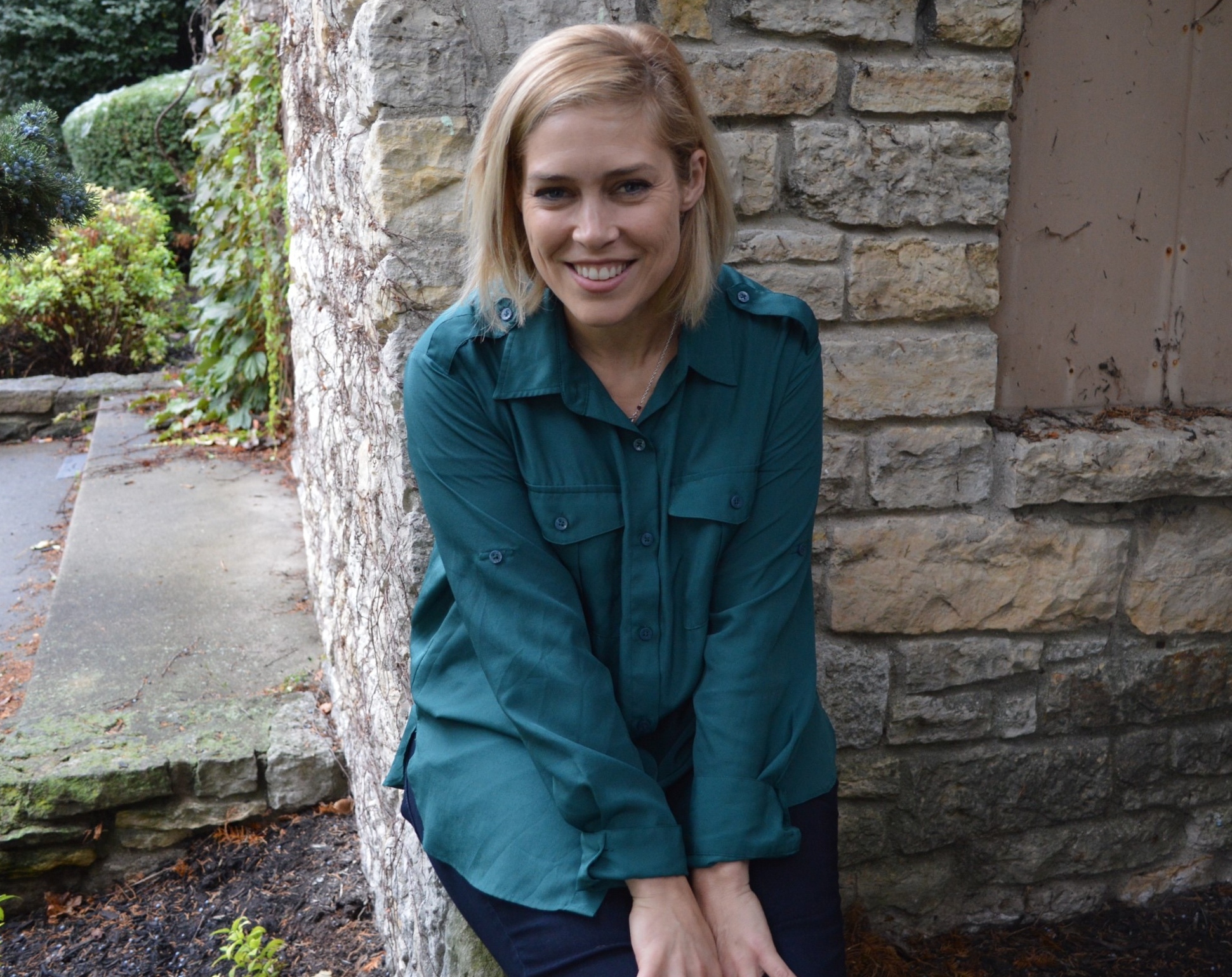Jesus Teaches Us How to Interact with People in the LGBT Community
Share

Do you feel ever confused about how Jesus wants you to treat people from groups different from yours? The answer should be simple: with warmth, open arms, and love. But when it comes to the LGBTQ community, sometimes Christians’ behavior is mixed — lukewarm at best, hateful at worst.
Just in case you don’t know, LGBTQ stands for lesbian, gay, bisexual, transgender, and queer.
This article will take an honest look at Jesus’ interactions with people whom his culture judged to be living in sin. It’s time we take our cues from him.
Many of you won’t hear a word I say, even if you read to the end. That is because you’ve been taught to filter out voices like mine.
- If you are from a conservative background, you may have been taught to filter out any suggestion of openness to the LGBTQ community — doing so could represent compromise, and we must refuse to compromise on sin (especially that one).
- If you are from a liberal or progressive background, you may have been taught that anyone who brings the idea of “sin” into the context of an LGBTQ lifestyle is clearly on the opposing side of the fight for a loving culture.
- If you are a person who considers yourself part of the LGBTQ community, you have every right to be suspicious — many Christians have treated people in your community in harmful, ungodly ways, and I am sorry. You also may be deeply offended by being compared to “sinners” in the Bible. But according to the Bible, everybody is a sinner. And Jesus was far more concerned with sins of the heart than with lifestyles that were condemned by the religious community. People who have been taught otherwise need to hear that in this context.
Whatever perspective you’re coming from, I respect you. I have the most to say to conservative Christians, because that is my background. But I am not asking you to agree or disagree about whether living an LGBTQ lifestyle sinful. I am asking you to suspend the side-taking for the next few moments.
Would you dare to consider another way?
Jesus is the only way, but we have not been taking that way. Christians who refuse to spend time with and love those who think and live differently from them have not been living like Jesus.
Who Do I Have to Love?
The Bible teaches us to love our neighbors. But in Luke 10, a spiritual leader stood up to test Jesus, asking, “Who is my neighbor?” By telling the story of the Good Samaritan, Jesus turned the question upside down (See Luke 10:25–37).
The question-asker wanted to know how much loving is required. But Jesus wanted to know how much love he was willing to give. And that’s his question for us today: “Who will be your neighbor? How much love are you willing to give?”
Looking at the Heart
If we want to know how to treat people like neighbors — even people very different from us — we can watch how our older brother Jesus did it. He didn’t really treat everyone “the same.” He met them where they were at and based his behavior on what they needed, not on what made him seem righteous in others’ eyes.
Looking at Jesus’ treatment of other people, we see both consistent patterns of behavior and context-dependent choices. In every situation, he was most concerned about what was going on in people’s hearts.
Jesus understood this about his Father: “The Lord does not look at the things people look at. People look at the outward appearance, but the Lord looks at the heart” (1 Samuel 16:7).
Jesus’ utmost concern was to do the will of his Father (John 6:38, 8:29) — not to satisfy the expectations of his followers, or even those in spiritual leadership.
Sometimes the way he most clearly demonstrated allegiance to his Father was by honoring and spending time with those who were living far from a “righteous” lifestyle. What would it look like for us to follow his way in this matter?
Again, please set aside for now the question of whether LGBTQ people are, by virtue of being part of that community, living in sin. I am talking about how Jesus teaches us to treat all people.
The Samaritan Woman (John 4)
As you might know, from the viewpoint of Jewish people in the New Testament, Samaritans were generally thought to be less than godly. In fact, the text says, “Jews do not associate with Samaritans” (John 4:9).
So watching how Jesus (a Jew) interacted with Samaritans can tell us something about how we should treat people in the LGBTQ community, considering that their lifestyle is deemed less than godly by some Christians.
Jesus had to cross through Samaria on a trip. He demonstrated that he wasn’t afraid or too good to interact with Samaritans by sitting in a public place by himself, while his friends went for food. When a woman approached, he interacted with her readily, asking for her help getting water. She was surprised he would even talk to her.
Jesus didn’t just ask the lady for water and move on. Nor did he immediately call her out for worshipping at the wrong mountain or for living in sin. Rather, he first got to know her, had a real discussion about God with her, welcomed her to receive from him what she needed, and then dropped a prophetic word:
She had a bunch of failed marriages and was now living with a man to whom she was not married. Perhaps Jesus shared this prophetic word so she wouldn’t be thinking, “If you knew who you were talking to, you would change your tune.” He did know her, and he wanted to be with her.
Sometimes, Jesus looked at people’s hearts and saw beauty, faith, and honesty — even though they were clearly living a sexually sinful lifestyle. In this woman’s case, he seemed to see a real desire to worship God truly, and he invited her to be part of that (John 4:23–24).
Can we learn from this? What if we acted like Jesus?
- We can have real, generous, loving conversations with all kinds of people — including people presenting as LGBTQ. For instance, Christian men can follow Jesus by having a friendly water cooler chat with the gay guys in their office. Refusing to do so — or conveniently avoiding these people — is certainly not acting like Jesus.
- Jesus didn’t start with correcting the woman’s sinful behavior, even though he already knew about it. You don’t need to tell people out loud or under your breath that you think they are living wrong. This includes the trans person checking out your groceries and your neighbor who gets their mail in drag. See past the outward appearance and look at people’s hearts.
Here is where the story in Samaria did not end:
- Jesus did not demand immediate repentance. (He did not say, “Go break up with the boyfriend you’re living with and then come to synagogue with me. And change your clothes, you’re making men stumble.”) In fact, the text does not explain whether she changed her living arrangements after this encounter.
- Jesus did not wipe his brow after a strenuous couple of hours in “sinful man’s land” and make his way back home. “He stayed with the Samaritans for two more days” (John 4:40). This probably means he slept in their houses, ate their food, and had long talks with many individuals.
While Jesus and the Samaritan woman were talking at the well, Jesus’ friends came back with food. But he was so amped up from his talk with this woman that he wasn’t hungry (John 4:31–38). One gets the impression that, for Jesus, this was a deeply satisfying, joyful way to live.
But What About...
This part is painful, but I’m going to speak openly here. Some people are worried that hanging out with gay people will lead to negative consequences for them or their family. There is much more to be said on these topics. It should be an open dialogue, not a closed case.
Normalizing Sin
People are worried that welcoming LGBTQ people into our lives will normalize sinful behavior. The apostle Paul said, “Do not be overcome by evil, but overcome evil with good” (Romans 12:21). Jesus lived not by keeping only goodness around him, but by bringing his goodness into dark places. Spending time with people does not mean everything they do is okay.
Leading Others Astray
What about people being led into the gay lifestyle? Did Jesus worry that his friends would be wooed by the woman at the well? I don’t know. But he invited them to spend a couple days with her and her people. He didn’t lead out of fear, but out of love and wisdom.
Exposure to Sexual Predators
Sadly, sexual predators tend to be wolves in sheep’s clothing. It is not safe to assume that someone is “not likely to be a predator” because they are a man who wears a suit and tie and sits in the church pew nearby. For the same reason, it is wrong to judge someone as more likely to be a predator because they act effeminate or cross dress.
We should trust people, not based on a spotless presentation, but based on their character. People look at the outward appearance, but the Lord looks at the heart.
Inviting Assumptions
Some of us are afraid to hang out with people who are LGBTQ because we think others will assume that we are too. And this is the thing, friends, following Jesus will definitely lead to false assumptions by others — even if you live in a culture where Christianity is the norm.
One day, Jesus was having dinner with a spiritual leader, a respected member of the community. In walks a woman with a jar of oil. She starts pouring the oil on his feet and kissing his feet. This was a very intimate and demonstrative thing to do. The spiritual leader hosting Jesus scoffed and looked down on him:
“If this man were a prophet, he would know who is touching him and what kind of woman she is — that she is a sinner” (Luke 7:39).
But Jesus defended her love as great, and her acts as prophetic and honorable (Matthew 26:10–13, Mark 14:6–9, Luke 7:47). He saw her heart, and her heart mattered more to him than respect from his peers.
Loving LGBTQ People Like Jesus
If we take an honest, careful look at Jesus’ life, here is what we see:
He spent time with all kinds of people — spiritual leaders, blue collar workers, prostitutes, swindlers, businessmen, wealthy women, and kids, to name a few.
He brought his love into social situations where love had been withheld in the name of upholding godliness.
He more or less ignored people’s outward presentation of themselves and looked instead at their hearts. (This was definitely a superpower, but it often involved having deep conversations like any regular person can.)
He lived unafraid of people’s judgment of him. His concern was the opinion of his Father. And he was already in good standing there, so he didn’t have to worry about what anybody else thought. He was free.
Photo credit: ©Getty Images/Rawpixel
